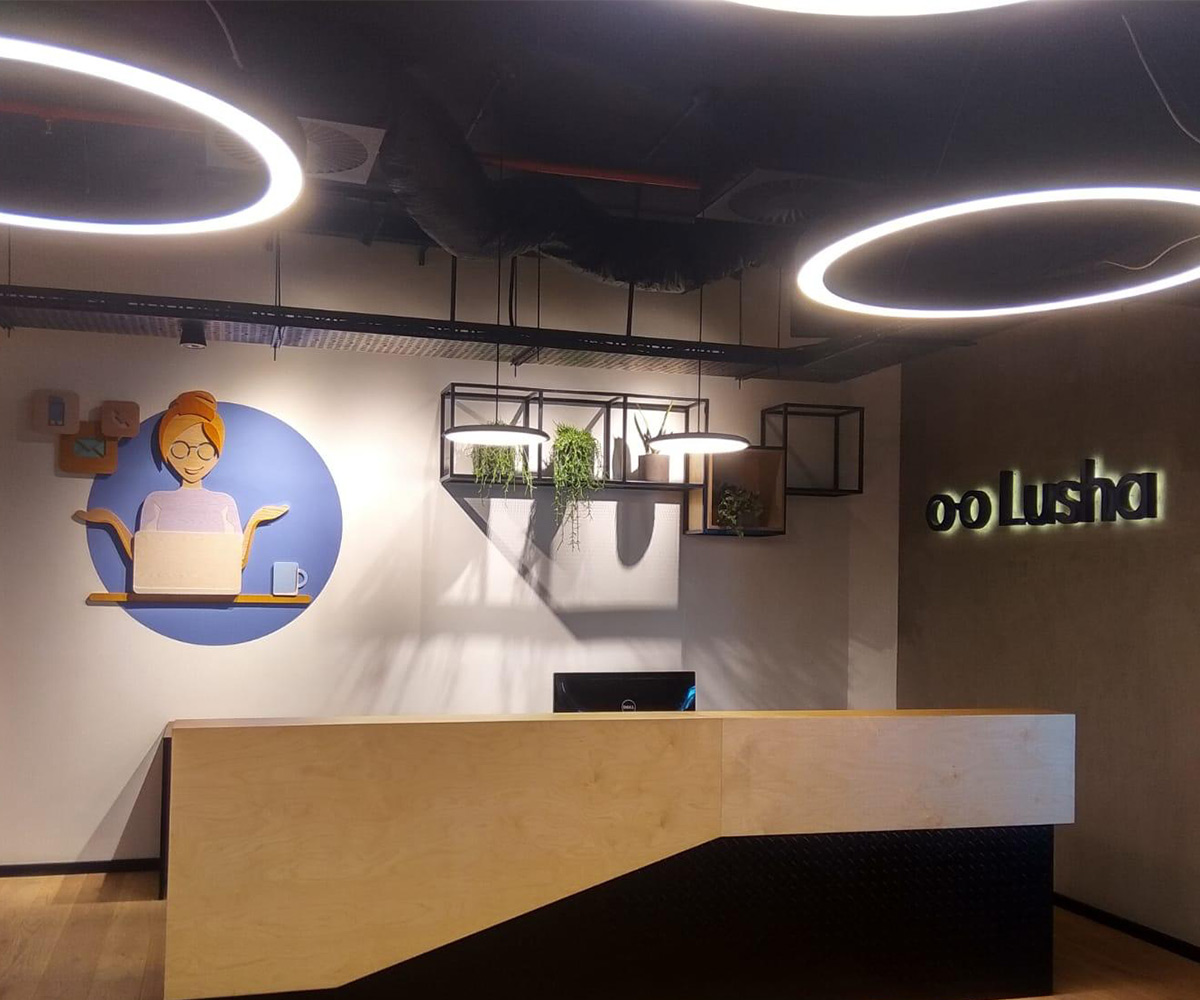LUSHA is a startup engaged in the field of DATA whose products enable salespeople and marketers around the world to reach prospective customers, shorten sales processes and close more deals. The company has thousands of users worldwide, including leading organizations such as Amazon, Google, and Oracle. Lusha, based in the center of Tel Aviv and established about 4 years ago, is a hip young company that is growing rapidly. In the last 18 months, the company has doubled in size and currently has 80 employees and still counting!
About 18 months ago, Racheli Shani Shtofer, Lusha’s VP HR, turned to Aya Lahmi Consultants, after the company’s CEO was introduced to OKR and sought to implement the method in the company.

Here’s their story –
Moran, who specializes in the OKR method, met with Racheli and the company’s two founders so that together they can formulate an optimal implementation process.
The first and most important question Moran asked them was: “Why? What makes you want to implement OKR in your organization?”
In our previous article we mentioned the many benefits that come with OKR in addition to measuring activities. Those who seek to increase their employees’ level of commitment require a different process than those who seek to set ambitious goals or expedite delivery.
Therefore, it is very important to understand:
- What are the company’s strategic goals?
- What is the organizational structure? Companies that work in an ‘agile squads’ structure often prefer a different work method than companies that work in a ‘waterfall’ structure;
- What defines a good manager in the company? A company that wants managers who push for goals will not go through the same process as a company that wants managers who empower and listen;
- What are some of the significant elements of the organizational culture and company values;
and more.

The more the process is tailored to the company’s needs, the more effective it will be and the easier the implementation of the method will be.
When asked why OKR, Lusha’s executives replied that they seek to get the company’s efforts more focused. A reply that led to the process of refining their organizational strategy and setting a limited number of company goals so that the entire company would be driven and pull in the same direction.
After about two minutes of conversation it was clear that Lusha is moving fast. No time to waste on chit-chat.
We quickly removed half of the meetings from the list and formed a new workflow that suits the company’s fast work pace and organizational DNA.
As our meeting progressed, another need became evident – the need for effective execution, to get things done. This helped us understand that inspirational definitions are unnecessary. What’s important for Lusha is to make sure that things happen, progress in the right direction and get realized. The wording used for our conclusions must also reflect that.
In addition, the collaborative system to control OKR, with which they set out, wasn’t as effective, so it was converted into a simple Excel spreadsheet that clearly shows the important stuff – how to move ahead. At Lusha they don’t rest on their laurels – they constantly examine and seek to improve themselves.
About six months after launching the OKR process, we started another process – formulating the company’s values. It was not surprising to find that one of the primary values was: Move Fast Learn Faster. A value that is also reflected in the OKR process.
At Lusha, when they want something to happen – they go all in!

How it went down:
- Once the company’s goals and custom-tailored process were formulated, the CEO convened a company meeting, explained the method and its importance and announced that they were starting right away.
- If you want things to happen quickly, you must establish a favorable environment and provide all the required tools: from workshops to get middle-tier managers acquainted with the method, to personal work with each manager, with the aim of reducing trial and error and quickly gaining professional experience.
- Racheli, was appointed OKR Officer and is now in charge of reminding, supporting and driving the process every 3 months.
- At the end of the quarter, the senior management met to analyze the results and draw conclusions for improving the process in the next quarter.
The results came soon after – the activity became more focused and measurable, the teams gained transparency, identified dependencies and the work between interfaces improved significantly. The OKR process is now running almost automatically.

Let us conclude with a funny anecdote –
We, as organizational consultants, are extremely satisfied to see the products of matured processes.
About a year after the implementation of OKR at Lusha, we visited them again to deliver an executive development program. In such programs, we encourage peer learning, in which executives advise each other on managerial dilemmas from their work.
About a year after the implementation of OKR at Lusha, we visited them again to deliver an executive development program. In such programs, we encourage peer learning, in which executives advise each other on managerial dilemmas from their work.
One of the first dilemmas that were mentioned was “How to influence the OKR of another team”.
I was so excited! Said Moran. For us, this represents significant success! Proof that the process has become routine and is part of the daily discourse between employees and managers.
By now we hope you’re in the mood to implement OKR in your organization – please contact us and we will be happy to assist you in the process.


